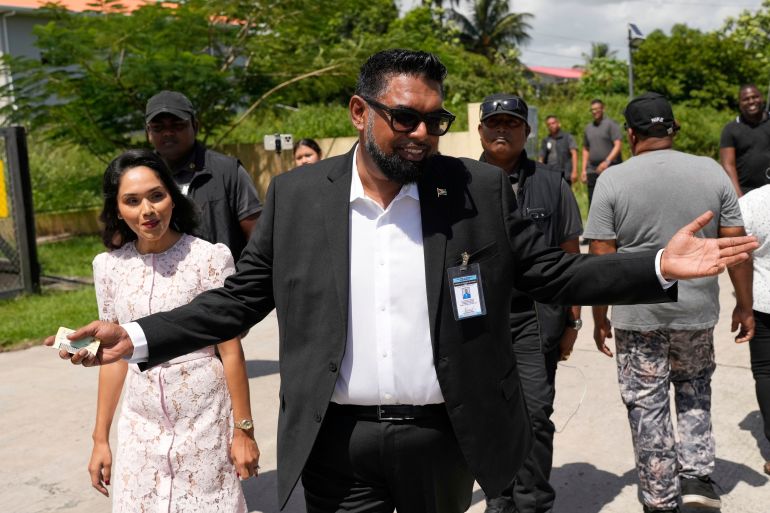People in Guyana are voting for a president and members of parliament who will be watching over billions in oil revenue, offshore production with a United States-led international consortium, and tensions with Venezuela.
Over 750, 000 registered voters will have until 6pm (22: 00 GMT) on Monday to cast ballots at some 2, 800 polling places.
Six parties are participating in the election to fight for the presidency and seats in the 65-member parliament.
But it is effectively a three-way race between President Irfaan Ali of the People’s Progressive Party (PPP), Aubrey Norton of the People’s National Congress Reform (PNCR), and billionaire Azruddin Mohamed, who started his We Invest in Nationhood party in March to challenge the two-party status quo.
Voting has traditionally taken place along ethnic lines, with the Indo-Guyanese supporting the PPP, and Guyanese of African descent backing the PNCR.
Billionaire Mohamed means to disrupt the system and has garnered some young backers of his own. But he is shunned by the US, which sanctioned him last year over allegations that he and his father Nazar Mohamed defrauded the Guyanese government of tax revenue and bribed public officials. They deny any wrongdoing.
The South American country’s president is seeking re-election as he wants to spend revenue from oil sales and royalties from a contract with ExxonMobil and others on infrastructure. Ali has governed one of the world’s fastest-growing economies since 2020 as a result of the oil boom.
But opposition groups claim that oil earnings disproportionately favour well-connected groups, and three of the five parties challenging the PPP have also pledged to renegotiate the country’s contract with ExxonMobil.
The victor will manage a booming oil economy that has quadrupled the state budget to $6.7bn in 2025 since production began in 2019.
But they will also have to navigate a crucial border dispute with Venezuela over the Essequibo region, where most of the nation’s oil reserves are located.
The Venezuelan government claims the region, which has been governed by Guyana since independence in 1966, as its own. Despite Caracas having no authority there, Venezuela elected a governor to the region this year.
The electoral commission in Guyana has said results may be expected by Thursday or later. The party that wins the most votes will select the next president.
Source: Aljazeera

Leave a Reply